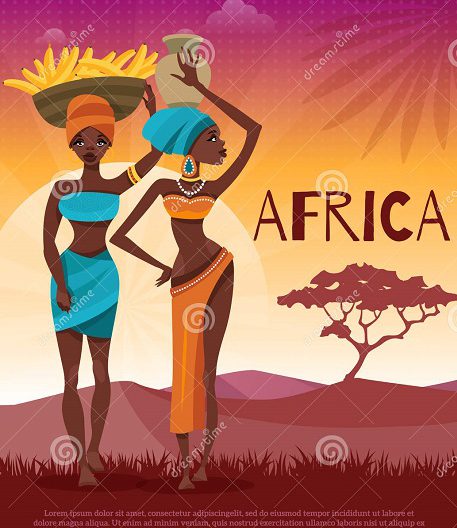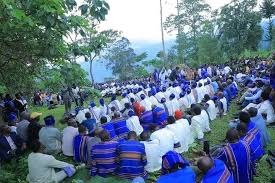
BY MULUGETA GUDETA
Globalization and identity are understood as meaning different things to different people. Particularly those engage in academic and media activities. For some in academic circles in Africa for instance, globalization is understood differently from what the Western world wants them to imagine. Many African intellectuals from different political spectra consider globalization as the highest manifestation of imperialism and the new face of capitalism understood as neocolonialism. This view borrows much from Kwame Nkrumah’s well-known thesis that neocolonialism is the highest stage of imperialism which he developed in his book with the same title.
For Western intellectuals, globalization is understood as a positive development that benefits both the rich and the poor countries by creating new opportunities in almost every sphere of life including, culture and sovereignty. The African critics of globalization do not agree on this point as they perceive globalization as something antithetical to cultural development and national sovereignty although it has beneficial outcomes in economic matters.
Africa is indeed benefitting from globalization in terms of market opportunities and technological advances in all spheres of life. However for many academics, the advantages of globalization should not be impinge on African identities, sovereignty or freedom and independence to shape their own policies. Others think that globalization has proved to be less beneficial to African emancipation and more damaging when it comes to shaping African identity.
In a research paper entitled “CONTEMPORARY AFRICAN PHILOSOPHY, IDENTITY AND THE QUESTION OF AFRICAN LANGUAGES” J. Obi Oguejiofor & NgoziEzenwa-Ohaeto say that, “Although the slave trade, racism and colonialism affected the identity of Africans and were at the base of the initial quest for an African identity, the contemporary threat to Africa’s identity is the issue of globalization.
It is a new feature of the world economy. It is one of the most challenging developments in the movement of the world history. It has continued to attract increased scholarly and analytical attention throughout the globe. It is currently affecting the psychology of African society through its imposition of constraints on policy-making autonomy or independence of Africa vis-a-vis our capacity for authoritative allocation of scarce and critical societal values or resources among other functions.”
This is the age of globalization as well as one of competing identities in all spheres of life including politics, economics and culture on an international scale. Even within countries enjoying multiple identities, the struggle for resources and political space leads one form of identity to clash against another one and vice versa. Even in homogeneous societies, individuals are bound to enter into competition against one another for jobs, political influence and upward social mobility. Globalization thus tends to exacerbate rather than attenuate the influence and intensity of competition among various identities.
The search for a unifying identity in the context of Africa has increasingly become intense as a result of globalization that often tends to undermine the struggle for national sovereignty and national identity in the face of the aggressive expansion of global markets, technological innovations and the domination of transnational corporations in the media and cultural spheres as well.
There may be different definitions of identity. However, identity is sometimes understood as a set of characteristics that allows you to be definitively and uniquely recognizable. “Identity is believed to play an important role in empowering individuals to exercise their rights and responsibilities fairly and equitably in a modern society.” Simply put, the identities of people are what set them apart from others. This includes language, culture, religion, profession, gender and other attributes.
Identity has increasingly become an important political, psychological and philosophical concept that triggers much heated debates not only in academic circles but also in public forums and media discourses. Identity has also become an issue that shapes peoples’ attitudes ranging from moderate views to extremist outpourings that often lead to conflicts. So, having a proper understanding of what identity is and how it manifests itself in modern or contemporary societies is of vital importance in order to maintain law and order or secure stability, fairness and justice in society both at global and national levels.
While the positive economic consequences of globalization are often overemphasized, its negative impacts attract less attention in the ongoing debate around globalization and its positive and negative impacts. Globalization no doubt has overall positive impacts on economic developments while it has less understood or overlooked implications on culture, sovereignty of less developing countries and national identity. The negative impacts of globalization on culture for instance assume primordial importance when it comes on its effects on African cultures or African identities in general.
According to supporters of globalism, “among the positive effects of globalization on culture are sometimes understood as allowing the mixing of people and cultures from all over the world that enables the sharing of ideas and lifestyles, creating vibrant cultural diversity. People can take holidays in far off locations. Consumers enjoy a greater choice of goods and services at cheaper prices. Migration of people can fill labor and skill shortages.”
On the other hand the more pessimistic evaluation of globalization maintains that “In many industrialized countries there is a persistent problem of illiteracy and low skills, which is an important source of social exclusion. Unequal access to education also fuels growing wage inequality and worsen the income distribution.”
The irresistible forward march of globalization and its negative consequences on the identity and national sovereignty of developing countries is forcing Africa to identify its priorities and protect them against the negative onslaughts of globalization.
It is important here to shed some light on what African identity is. Africa is a continent of more than 1.2 billion people and hundreds of ethnic groups, languages and identities. So, when we talk about African identity we are talking about the sum of all the identities in all African countries or the common denominators that are shaping the trends towards a homogeneous African identity in the same way as we talk about European or American identities.
In the same research paper the above-quoted authors talk about African identity and its future trends and what needs to be done to preserve, defend it in the face of aggressive globalization. They deal with African renaissance and the future of Africa’s identity saying that, “Considering the advantages and disadvantages of globalization for Africa, it is obvious that the identity of Africa is at stake. There is thus a need for the preservation of Africa’s identity. The primary question here is: what should Africa do in the face of the centrifugal forces of globalization? In this paper, the researcher calls for an African renaissance”
What is African renaissance? The authors answer this question by saying that, “This renaissance must begin from the smallest sociological unity. The family is the first school of fundamental anthropology, sociology and dynamics of culture. Particularly in Africa, the family is the maternity home, the nursing home and primordial school of society.
The family is the birth place of traditional values, and at the same time where it is nurtured and developed. As leaders of the family, parents have the duty of making their families the place where these values are taught, transmitted and sustained. Parents should take the teaching of culture as an important duty and primary right.”
They also deal on the role of the mass media in the face of aggressive Western mass media that tend to suppress African identity through Western cultural influences. The same authors say: “In this age of globalization, science and technology, and near invasion of the mass media in our homes, it is incumbent for parents to insist on sound African moral values for their children. Parents must make out time to stay with their children and provide them with an alternative African perspective.”
“In an age where ‘material success’ has become the yardstick, it is crucial to inculcate African values, such as solidarity, the sacred, hospitality and love for life. One of the great instruments for African renaissance is language. Irrespective of where parents find themselves with their children they should endeavor to teach them their native language. Language carries with it the culture and worldview of the people who own it. Some African families can be described as ‘expatriate’ even though they live within Africa. These are the wealthy families who think that it is obsolete to be African.”
These are some of the ideas on which a common African identity will be based if Africans are expecting to avert some of the most serious negative influences of globalization. African identity, as many writers have described it, is different from other identities, and is based on common value systems, traditions and cultures.
As a brief description of what African identity is, we can perhaps quote the following short definition that says, “African identity is ‘being-with’ as opposed to the Western individualism, communalism as oppose to collectivism. African ‘self’ is rooted in the family-hood. The West battered African World view and cultural heritage, with the racialism, slave trade, colonization and other Western ideologies.”
The idea of African renaissance first emerged in South Africa in the wake of its liberation from hundreds of years of Apartheid which is one of the worst forms of racial discrimination against black Africans. South African radio is called “The Voice of African Renaissance”, presumably focusing on the peoples of the continent and serving as the voice that would encourage and promote the objectives of African renaissance in other areas. However, after almost three decades of activities, the Voice of African Renaissance is far from living up to its objective of uniting Africans and advocating the cause of African political, cultural and economic liberation.
Other independent media outlets are trying to promote similar objectives, testifying to the fact that the media in Africa can either serve the complete liberation of Africans or play the role of Trojan horse for the forces of globalization. African unity is of course a long process of political and cultural emancipation based on the charter of African Unity and embodied in the project 2065, which is the projected time when African countries would form a united political entity shaped after the European Union model.
Whether this project will be crowned with success or not, it will largely depend on how Africans are facing the ongoing struggle against the negative influences of globalization. This is not something beyond their vision or beyond their capacity as the Chinese have already demonstrated that a country, let alone a continent with vast resources, can beat the odds to emerge as a powerful and independent entity economically, culturally and in every way of life; without forgetting that globalization on its part might evolve in more positive or negative directions and whatever the costs will be to survive in even more hostile political environments for Africa and Africans.
The Ethiopian Herald march 27/2022




